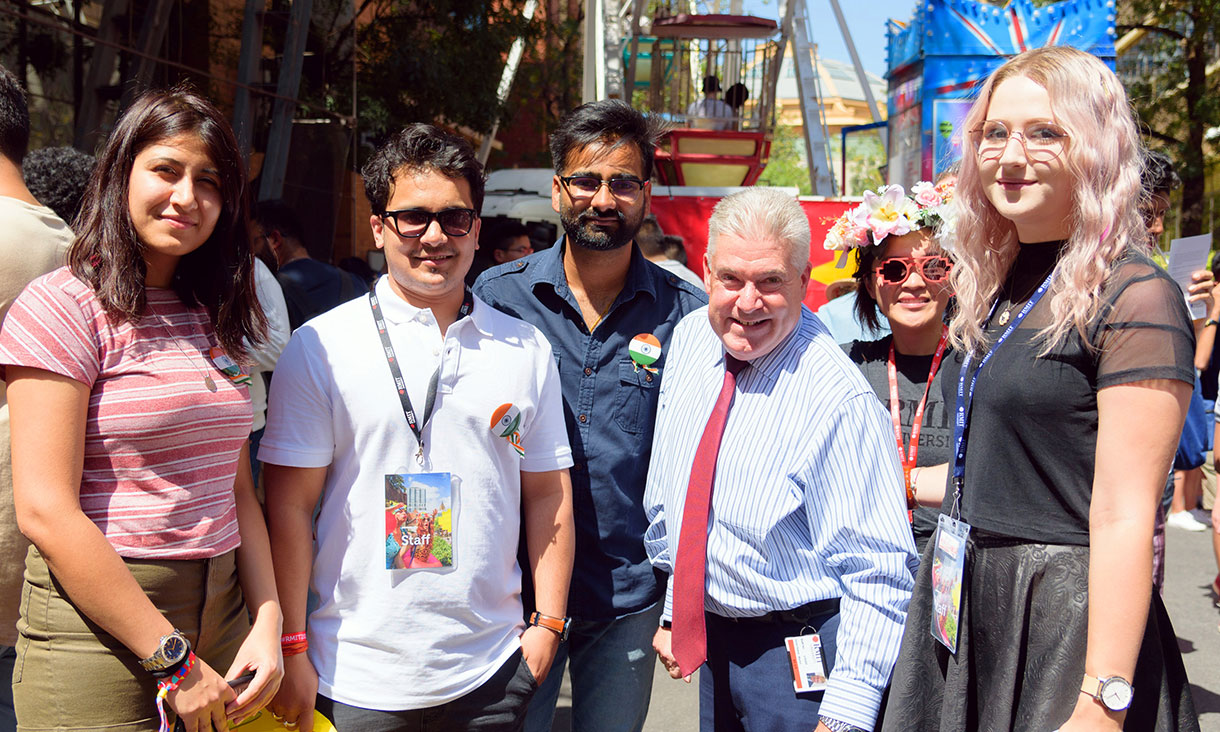There’s an ever-increasing fear that a robot may one day take your job.
While technologies continue to evolve at rapid speed, it’s not unnatural to wonder whether the dream professions we’re working so hard towards will be around in the future, thanks to the era of automation.
Yet this topical debate has uncovered a strange but very real truth. There are certain traits that robots just cannot – and will not – ever replace, and which we continue to undermine. According to a McKinsey report, humans are still much stronger at skills such as logical reasoning, creativity, coordination, identifying social and emotional states and moving around diverse environments. Mastering human skills or “soft skills” will give Singaporeans a competitive edge that robots can never have.
We spent some quality time with ex-RMIT student and chairman of multinational food giant Sakae Holdings, Douglas Foo, to discuss which soft skills are vital for those about to voyage into the unknown depths of tomorrow’s workforce.
Swim in the sea of success with soft skills
So what are soft skills? Essentially, our ability to form real connections with others and our personal attributes – like adapting and learning quickly – are the traits that no machine can take away from us. Most importantly, these skills are for life. They can be transferred and applied to any role, in any situation, for any industry.
Yet studies have found that the Singapore job market focuses on technical skills while placing less focus on soft skills. But these, stresses Douglas, are of vital importance.
“I think today it is less about what you learn in school, and more about how you are able to apply those skills to bring solutions to the table in any enterprise,” he says.
1. Learn to keep pace with the chaos
Focus on becoming adaptable, as this will help you quickly adjust as industries go through unpredictable transformations in the future.
“All industries are currently facing disruption from digitisation and rapidly developing technology,” says Douglas. “It’s no longer possible to get out your crystal ball to predict how a certain industry will evolve. Being future-ready means finding ways to add value to your industry no matter how it changes.”
2. Be a team player
This is already happening, but collaboration will become even more important in the future. Companies will try to find common ground with other businesses so they can serve their common customers better.
“Many industries are already coming together to solve common problems and to create solutions that will make people’s lives better,” explains Douglas. “That need will increase in the future, so the most in-demand employees will be the ones who can most effectively collaborate with partners across industries.”
3. Take a global view
You will need the ability to communicate with people from different cultures.
“The new world is going to be a lot more borderless, and when you look at the digital world, there are no borders at all,” says Douglas. “Language skills are important, but your ability to build relationships beyond cultural boundaries will be even more important.”
4. Imagine the possibilities
At first glance, imagination and the corporate world do not go hand in hand. But the opposite is true and employees with vision will be a hot commodity.
“Things are evolving so fast. You need to imagine the kind of world that we will be living in and how far technological advancement is going to disrupt a lot of industries,” says Douglas.
5. Make data your new language
“Data will become very important in the future. If you are able to draw the best insights from an organisation’s data, you will excel,” says Douglas.
This means you will need to master the latest data visualisation tools and use data insights creatively to understand how your customers think and behave. This will enable you to solve problems that even your customers themselves didn’t know they were facing.
6. Put the machines to work for you
As artificial intelligence and machine learning develop, you’ll need to change the way you think about computers.
“We will need to use technology as an enabler to provide better service to our customers,” says Douglas. “For example, with technology I could forecast your consumption schedule and produce a product or service to fulfil it at exactly the right time.”
7. Above all else, follow your heart
Passion is not a skill, but it is still necessary if you want to achieve longevity in a fast-paced world.
“I think the most important thing is to follow your heart and do something you are passionate about. If you have passion for an industry, and the passion to bring something new to that area, success will follow,” predicts Douglas.
Technologies will continue to change and we will undoubtedly need to keep pace with them. But the ability to interpret human emotions, the agility to work with people from various backgrounds and the depths of brilliance a creative mind can achieve, are qualities no machine can ever match up to. As you gain technical knowledge, continue to hone your people skills so your employment in the future is guaranteed.
